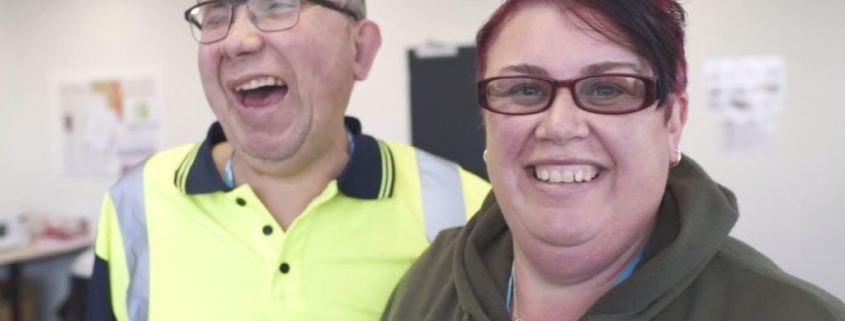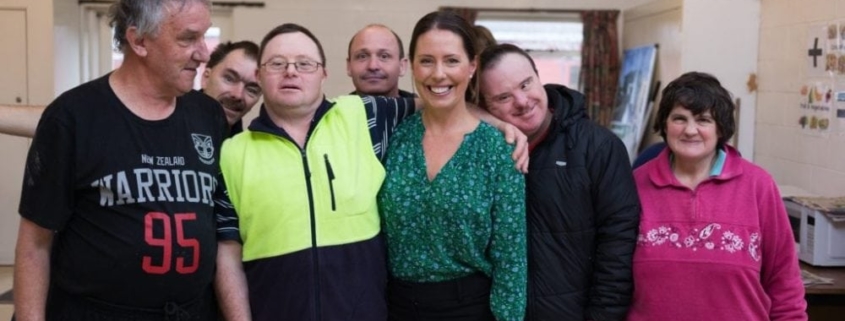“It’s push and pull,” Hannant says. “Consumer demand can be triggered by options being there in the first place, providing more purchasing or service opportunities for people to choose from in their everyday decisions. But at the same time you are trying to build public awareness to create demand. If we want an ethical pension fund, for example, maybe someone will create that opportunity.”
In the US, sustainably invested assets now account for more than one dollar in five, and millennials are twice as likely to invest in shares or funds that target specific environmental or social outcomes.
In New Zealand, social enterprise start-ups find receptive audiences on crowdfunding platforms, but high-end, high-impact investment is still in its infancy, says Bill Murphy, executive director of Tauranga-based Enterprise Angels investment network. Some investors say it’s too risky, but “others are starting to wake up to the fact that we can’t keep going the way we are and they will ameliorate the commercial way of looking at it. They’re saying I want my money to make a difference – a capital D difference.”
Local authorities, too, are beginning to look at how they can make a “capital D difference” through their procurement strategies. The 2002 Local Government Act requires regional authorities to adopt a sustainable development approach to procurement practices, taking into account the social, economic and cultural interests of their communities and the need to enhance the quality of the environment.
Tania Pouwhare is the social “intrapreneur” for Auckland Council’s The Southern Initiative (TSI), which aims to increase social and community innovation in South Auckland. She says that although the council’s size makes it difficult to connect with smaller businesses and providers, some arms of the “council family” are using tenders to help social enterprises meet procurement and social-outcome goals.
“It is not just the type of nails you are going to use in the decking or the pitch of the roof,” she says. “Those things are there, but we are now buying quality employment outcomes for people far away from the labour market, reductions in carbon emissions and diversion of waste. So it’s the impact we are buying – on local communities, environmental sustainability and on wider social outcomes.”
Each purchase, she says, carries different weightings according to different criteria: the emphasis may be on gender equality, professional development, leadership, wages or, of course, cost, “but we are not about feeding the low-wage, low-productivity problem. Our job is to disrupt it.”
To help smaller enterprises compete in the tendering process, large projects can be “unbundled” into small packages. When a comprehensive creek restoration project was planned for Mt Roskill, for example, the propagating and planting portion was awarded to the local Te Whangai Trust. The trust has since set up a native nursery at Wesley Intermediate School, where vandalism has fallen, schoolchildren are learning about native plants and biodiversity and unemployed locals get training and qualifications in horticulture, says Pouwhare.
Earlier this year, TSI joined Auckland Transport, winner of the 2017 New Zealand Procurement Excellence Awards for its commitment to social and environmental outcomes in its City Rail Link project, to develop Fale Kofi, a coffee kiosk at the new Ōtāhuhu bus-train station.
The pop-up cafe, run by local Pacific youth agency Affirming Works, offers Māori and Pasifika food with a focus on high standards of nutrition and affordability. It is staffed by young students, who fit work around their class timetables, and promotes Māori and Pasifika identity though food options, bilingual signage and a fit-out designed by Roots Creative Entrepreneurs made from recycled and upcycled materials.
As a pilot social enterprise model, says Pouwhare, it’s a win for all parties: the city gets a vibrant transport station, local businesses are developed and supported, “and visitors know they are in the largest Polynesian city in the world”.
No easy task
“How does the Government get more value, how do we as taxpayers get more value out of things we would have bought anyway?” says Hannant.
For central Government, that win, facilitated by close engagement with grass roots organisations and community groups, is not so easy to attain. Governments have huge buying power: from big contracts for social services to paper clips and toilet paper, OECD Governments spend about 15% of GDP on procurements. But finding ways to use that spending to improve social and environmental outcomes has been a slower process.
“Social enterprise is part of our thinking,” says Margaret Pearson, chief adviser of procurement for the Ministry of Business, Innovation and Employment. “It is not saying you have to favour a social enterprise over another type of business. It is about fairness to all suppliers, which links back to our international obligations, but the principles are flexible enough to allow agencies to make those balanced decisions and take those other factors into consideration.”
Crown agencies have a responsibility to get the best deal, “but that doesn’t always mean the lowest price – economic, social and environmental impacts should all be considered as part of that procurement process. Quality of supply, ability to supply, sustainability – those factors are all taken into consideration. It may not be worded ‘social enterprise’, but the rules and principles are flexible enough to draw those three components into consideration.”
The postie cometh
NZ Post, which is now in its 177th year, has been using that flexibility to support local communities for more than a decade. It encourages its staff to do volunteer work; it is reducing its carbon footprint through the use of recycling and electric vehicles. Now, in partnership with Ākina, it uses its procurement processes to help social enterprises. For the SEWF it contributed delegate bags made from recycled billboards by Wellington social enterprise Spinning Top. It also negotiates subcontracting possibilities with larger suppliers, and is working with Ākina to set up regional social enterprise hubs for training and support.
“It is not a question of spending more,” says NZ Post head of sustainability Dawn Baggaley. “We have to manage our costs because we have to deliver a return to the Government and, as with any other purchasing decision, we look at all the criteria – cost, service delivery and the additional social or environmental value that it adds.
“For us, it is a no-brainer: we are going to buy these goods and services anyway, so if we can buy them from a social enterprise that can deliver the same product or service and deliver a positive impact in society and the environment, then that is good for us, for our customers and the community we operate in. Why wouldn’t we do it?”
But there are barriers. Many small enterprises do not have the business acumen to compete with large-scale operations; few would have the tender-writing teams to seek out lucrative local or national government procurements; some struggle to tell their story to win the interest of consumers and investors.
Another challenge is the absence of a legal structure for this new breed of values-based commercial entities. As it is, a social enterprise must operate either as a charity or a limited liability company. Neither model, says Christchurch lawyer Steven Moe, works well.
“A charity will struggle to find investors or business support because there cannot be any private benefit. A company can be profit-making, but then it is not eligible for public-sector funding or philanthropic grants.”
Moe is recommending a mix of the two: a separate legal structure by which social enterprises must state their purpose and report on their social benefit activities. Such an entity would be required to put a cap on the level of dividends paid out and would be able to claim tax exemption for the parts of the business that are purely charitable.
As he points out in a new legal handbook on social enterprise, this is being done overseas: Scotland recognises social enterprise through a legal “community interest company” category; Canada and 32 US states give legal status to social-benefit corporations and Australia is looking to introduce something along those lines.
“So we need to take the best of what has been done overseas and apply it here. A social enterprise company structure would automatically mean people feel comfortable that you are trying to do something good and acting with purpose. As well as attracting investors, it would raise the profile of the sector in a way that is not possible if we just make do with existing structures.”
Hannant says a distinct legal structure for social enterprise would also make it easier for the Government to develop policies and financial support for those organisations, provide quality assurance to customers and investors and reduce the risk green-washing – people calling themselves social enterprises because “they feel it is a popular thing”.
The Government is looking at new ways to support social enterprise. The report to Internal Affairs proposed a cross-agency Social Enterprise Unit to address policy barriers, an intermediary body to spearhead social enterprise growth through mentoring, technical assistance and online resources, and a development grant fund for social enterprises in their early stages.
Already momentum is growing. In 2014, the Rata Foundation, formerly the Canterbury Community Trust, allocated $2.5 million to a new Social Enterprise Fund. Last year, the then Community and Voluntary Sector Minister Jo Goodhew announced a new cross-agency working group to gather more data on social enterprises and explore ethical investment. In July this year, the Government announced $5.5 million in funding to boost social enterprise and do research into the size, scale and value of the sector over the next 3-4 years.
This year, too, Ākina announced its Impact Enterprise Fund for large-scale investors, and the country’s first social-procurement model prioritising Maori and Pasifika enterprises in local government and corporate supply chains was launched. NZ Post, meanwhile, has committed to buying goods and services from at least three social enterprises over the next 12 months.
Community and Voluntary Sector Minister Peeni Henare says the Government will be looking at further ways to facilitate social enterprise. “It is something that has really come on to the radar over the past decade and we are keen to see it grow more.” But before looking at further funding commitments, he says, it is important to see where any barriers to growth might be – whether in legislation, policy “or the mechanisms that allow businesses and the like to donate or contribute to social enterprise”.
Watch this space, says Hannant. Following overseas trends, social enterprise, he says, will raise standards across the economy. Mainstream business will be expected to create more value by including social enterprises in their supply chains, and everyday investors will be demanding more from their pension funds and savings accounts.
“It is important we see social enterprise as a tool, but it has to be led by something which has more intention around what is the community and the country we want to create. Then, within that vision, what does business look like? Rather than seeing it as a niche thing, it should resemble what wider society wants.”
In her Christchurch laboratory, Brianne West has no intention of developing Ethique as a niche brand.
“When you enter a new market, you have your early adopters – but then hopefully you branch out because your product is so good they tell their friends. I want this to be business as normal – business should be responsible. It concerns me when people ask why we operate in this way. Because you should do – it really is that simple.”
This article was first published in the November 11, 2017 issue of the New Zealand Listener.
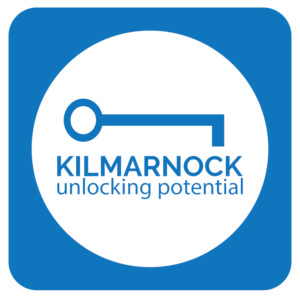
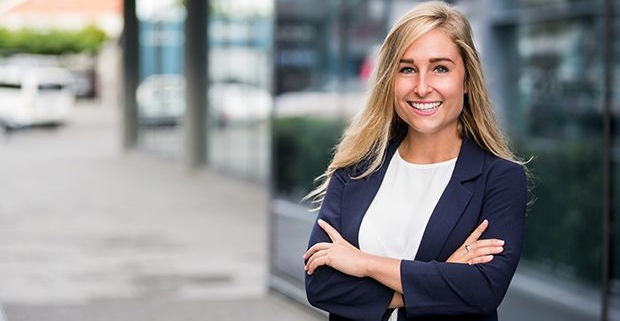
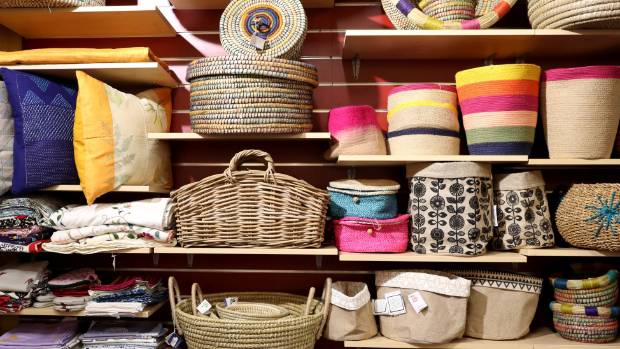


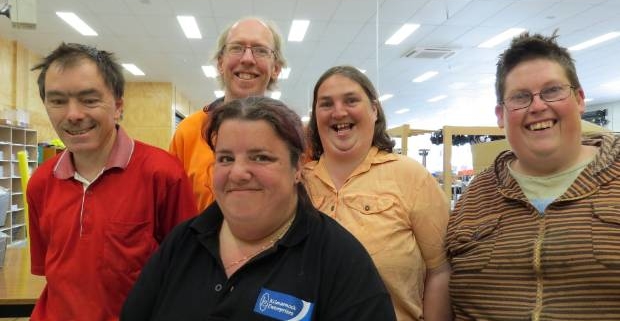





 It was a eureka moment, though it played out not in a bath, but in the shower. University of Canterbury biology student Brianne West was washing her hair when the idea struck her: why add to the world’s mass of plastic waste simply because shampoo is so diluted it needs a plastic bottle? After all, there was plenty of water coming out of the nozzle. It was, she says, “one of those lightning-strike moments”.
It was a eureka moment, though it played out not in a bath, but in the shower. University of Canterbury biology student Brianne West was washing her hair when the idea struck her: why add to the world’s mass of plastic waste simply because shampoo is so diluted it needs a plastic bottle? After all, there was plenty of water coming out of the nozzle. It was, she says, “one of those lightning-strike moments”.











